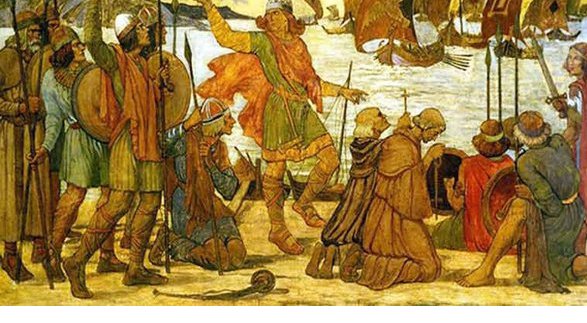Why didn’t Normans speak Frankish or Old Norse? The Normans did not speak Frankish or Old Norse primarily due to the unique sociolinguistic and historical context they found themselves in after settling in what is now Normandy, France. Here are the key factors:
Adoption of Local Language (Old French):
When the Viking leader Rollo and his followers were granted land by the French King Charles the Simple in 911, they settled in a region that came to be known as Normandy. Over time, the Norse settlers intermarried with the local Frankish and Gallo-Roman population.
The local population spoke Old French (a Romance language derived from Latin), and the Norse settlers gradually adopted this language. This process was facilitated by the need to communicate with the local inhabitants and to integrate into the existing social and political structures.
Assimilation and Acculturation:
The Normans quickly assimilated into the Frankish culture. They adopted the local customs, legal systems, and administrative practices. This assimilation process naturally included the adoption of the local language.
As the Norse settlers became more integrated into Frankish society, the use of Old Norse declined. Within a few generations, the descendants of the Norse settlers were primarily speaking Old French.
Political and Social Integration:
The Normans established a strong and centralized duchy under the leadership of Rollo and his descendants. To maintain control and legitimacy, they had to adopt the language and customs of the surrounding Frankish nobility and populace.
Speaking Old French allowed the Normans to effectively govern their territory and interact with other Frankish lords and the clergy, who were key power brokers in medieval Europe.
Linguistic Evolution:
The evolution of the Norman identity was marked by a shift from Norse to a distinct Norman culture that blended elements of Norse and Frankish traditions. Language is a crucial part of cultural identity, and the transition to Old French reflected this new, blended Norman identity.
Over time, Old French itself evolved, and the Norman dialect became one of the many regional dialects of medieval France.
In summary, the Normans did not continue to speak Frankish or Old Norse because they assimilated into the local Frankish society, adopted the Old French language, and evolved a distinct Norman identity that was influenced by both their Norse origins and their new Frankish environment.


